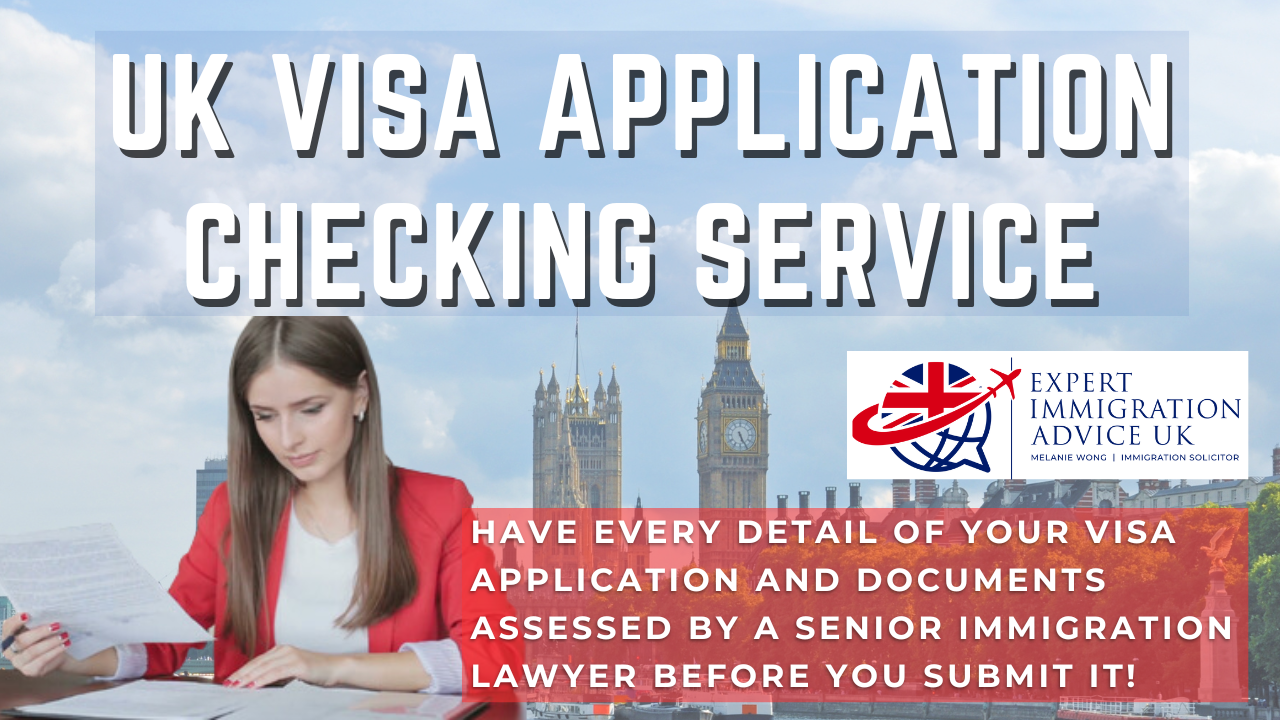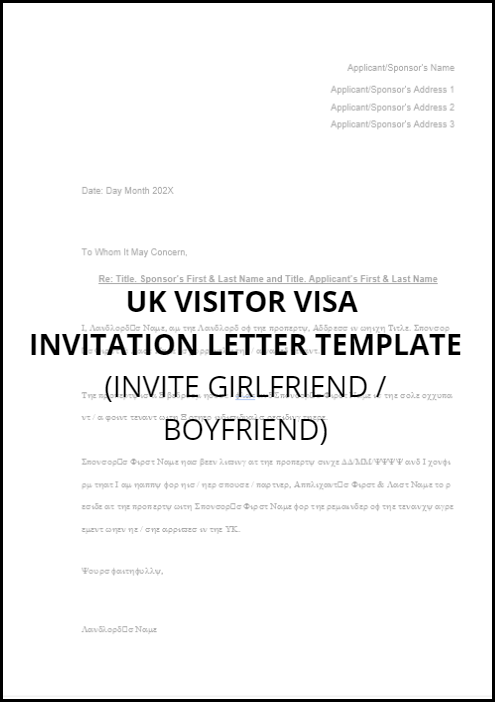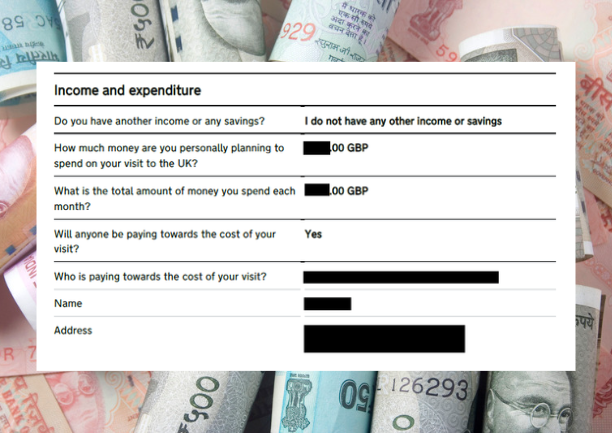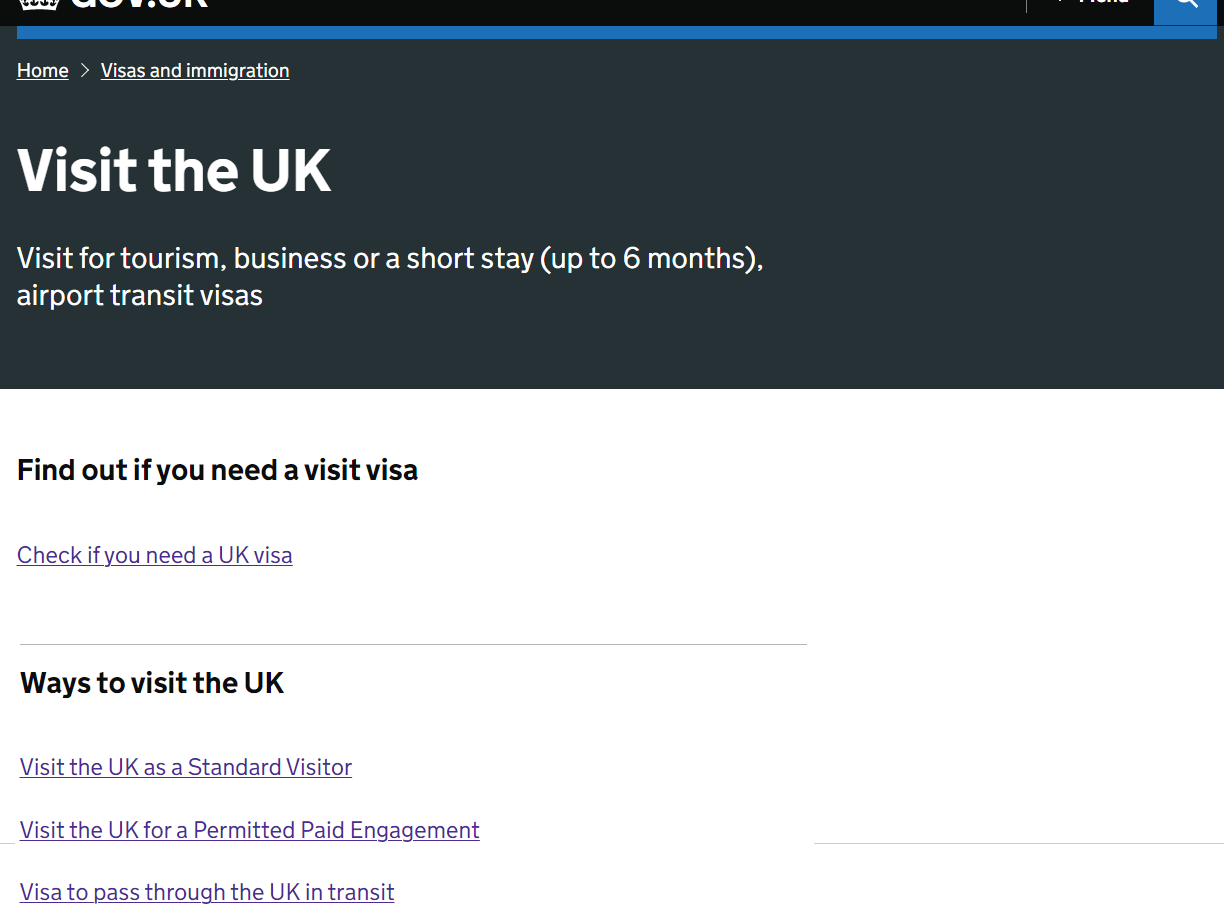Reasons why UK Visitor Visa Applications get Refused
Share this:
Visitor Visa for the UK
Unless you are a non-visa national i.e. you are visa-exempt, and need to visit the UK, you will need to apply for a 'Visitor Visa' to enter the UK. There are several types of visitor visas, each one permitting different or specific activities. The most common visitor visas include:
- A Standard Visitor Visa permits you to come to the UK for activities including tourism, visiting family and friends, conducting specific business activities (such as attending a meeting or conference), receiving medical treatment or for short-term study. - This visa is also commonly known as a “Visit visa” or “Tourist visa.”
- A Permitted Paid Engagement Visitor Visa allows certain professionals to come to the UK for a paid engagement by a UK-based organisation or client.
- A Marriage Visitor Visa gives you permission to get married/register a civil partnership, or give notice of a marriage or a civil partnership in the UK.
- Visa to pass through the UK in transit is required to pass through the UK in transit (on route to another country).
Success Rate of UK Visitor Visas in 2024
For the year ending March 2024, the success rate of UK Visitor Visas was just 71% (just over 2 million from a total of over 2.5 million applications submitted). That leaves a (significant) total of over half a million refusals (21% of all visitor visa applications the Home Office received for the same year). - Source: Home Office.
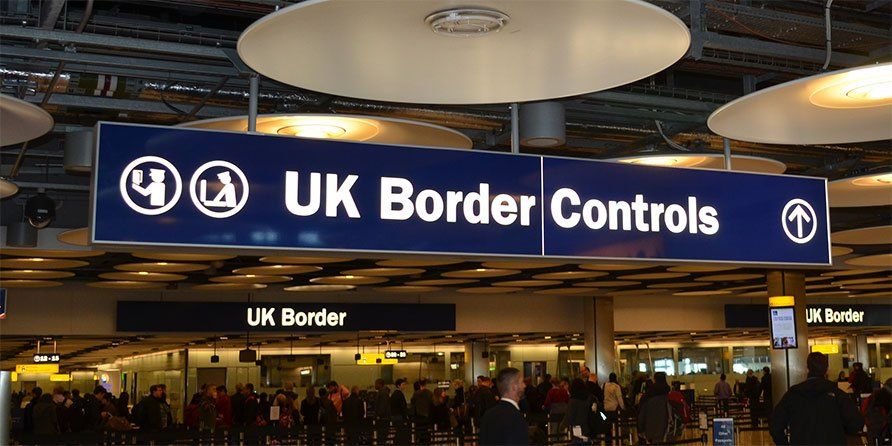
What do you need to be eligible for a Visitor Visa?
As well as having a valid passport/travel document for the duration of your trip, the Home Office will also require you to sufficiently demonstrate that you are coming to the UK as a 'genuine visitor' i.e. you are coming to the UK for a short stay, and will then return to your country of origin/residence once your trip has ended. Therefore you will need to clearly evidence:
- The purpose of your visit to the UK (which will need to be a permitted activity in accordance to the type of visitor visa you are applying for)
- That you will leave the UK when you finish your visit
- You have sufficient funds for your travel from and return to your home country
- You will be able to financially support yourself and your dependants during your stay
- You are not attempting to establish permanent residence in the UK or make it your primary residence by frequent or consecutive visits
How do you prove that you meet the requirements?
You will demonstrate the above to the Entry Clearance Officer assessing your application, by submitting relevant documents to support your case.
The exact documents you need to provide will depend on the reason(s) for your visit to the UK and your personal circumstances.

What Documents do you need to prove that you meet the requirements?
For all UK visa applications, including visitor visa applications, the Home Office want to see supporting documents to demonstrate that you satisfy all of the immigration rules for the application, as well validate what has been entered on the application form.
It is the quality, not the quantity of these items that has to be considered when making a visa application. Each supporting document must be relevant to what it is intending to validate.
Unfortunately there is no one-size fits all set of documents that can be applied to support your visitor visa application, as the items you must submit will always be subject to your personal circumstances. The core items you will be expected to include are:
- A copy of your valid Passport/Travel document
- Proof of Finances, such as Bank statements
- Evidence of suitable accommodation you have arranged in the UK
- Confirmation of any travel bookings, or relevant activity plans already scheduled
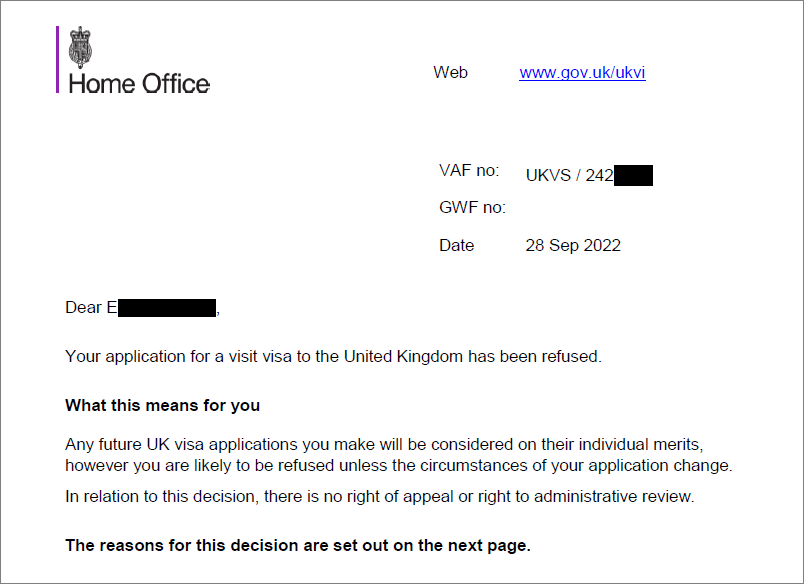
Why would your Visitor Visa Application be Rejected?
To determine whether an individual will be a genuine visitor, the Home Office will consider several factors, including:
- If the applicant's intentions to come to the UK fall within the list of permitted activities
- Whether the applicant has strong and significant ties in their country of origin/residence
- Whether the applicant will be able to afford their visit to (and stay in) the UK
- The applicant's immigration history
True Purpose of your visit to the UK
Refusals can occur when the Home Office suspects you are not being truthful regarding your full intentions for coming to the UK. Lack of details regarding the reason for your visit could make them question the duration of your stay, or the plans you are making/have made.
If the purpose of your visit is unclear, the Home Office may assume that you are not being honest about wanting to come to the UK solely to visit.
Affording your visit to the UK
You must be able to prove that you will be able to financially support yourself (and any dependants) for the duration of your trip, including being able to pay for your return/onward travel and any other costs you are likely to incur during your visit. Failure to provide sufficient evidence to confirm you have adequate funds to cover all of your costs for your planned trip to (and stay in) the UK, is a common reason for a refusal.
If any of your costs, including maintenance and accommodation, are being covered by a third party, you must be able to evidence your relationship with the person is genuine. You must also prove that they have the financial means and/or suitable accommodation to provide you financial support and/or accommodation, and they have willingly agreed to do this.
Strong and Significant Ties
The Home Office will assess whether the applicant has compelling reasons for them to return back to their home country. Examples of an applicant having “strong and significant ties” to their country of origin/residence can include:
- Having a career/job which they have had for a number of years;
- Owning and operating a business in their country;
- Owning assets, such as property in their country
Previous Immigration history
The Home office will also assess the applicant's immigration history, especially if the individual has been to the UK in the past. If they have visited the UK in the past, any breach of the immigration rules e.g. unjustified overstaying, will be detrimental to the visitor visa application.
Related Posts
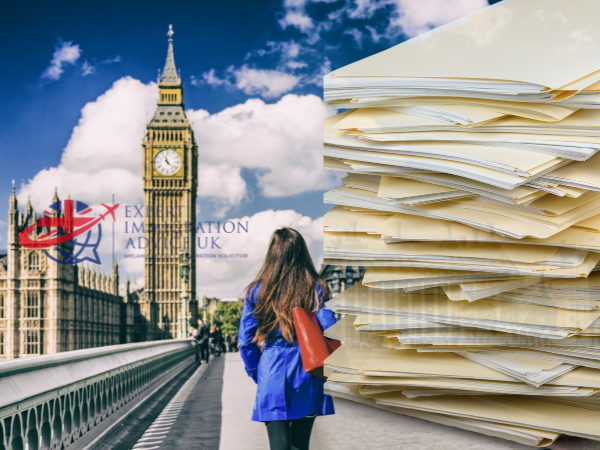
Share this:
While every effort has been made to ensure that the information and law contained in this article is accurate and current as of the date of publication, we accept no responsibility for its accuracy or for any loss or damages arising from accessing, or the reliance, of this guidance.
Please also note that the information does not represent a complete statement of the Law and does not constitute legal advice.
If you would like specific professional advice about your UK immigration matter, please consider booking a consultation or one of my other legal services.
Making a UK Visa or Settlement application can be a stressful experience, and whilst there is a lot of ‘free’ information online, finding clear expert guidance that is up to date, and in line with your specific requirements can be a daunting task.
If you have any concerns about your case, it is recommended to reach out for advice from a trusted legal professional.



